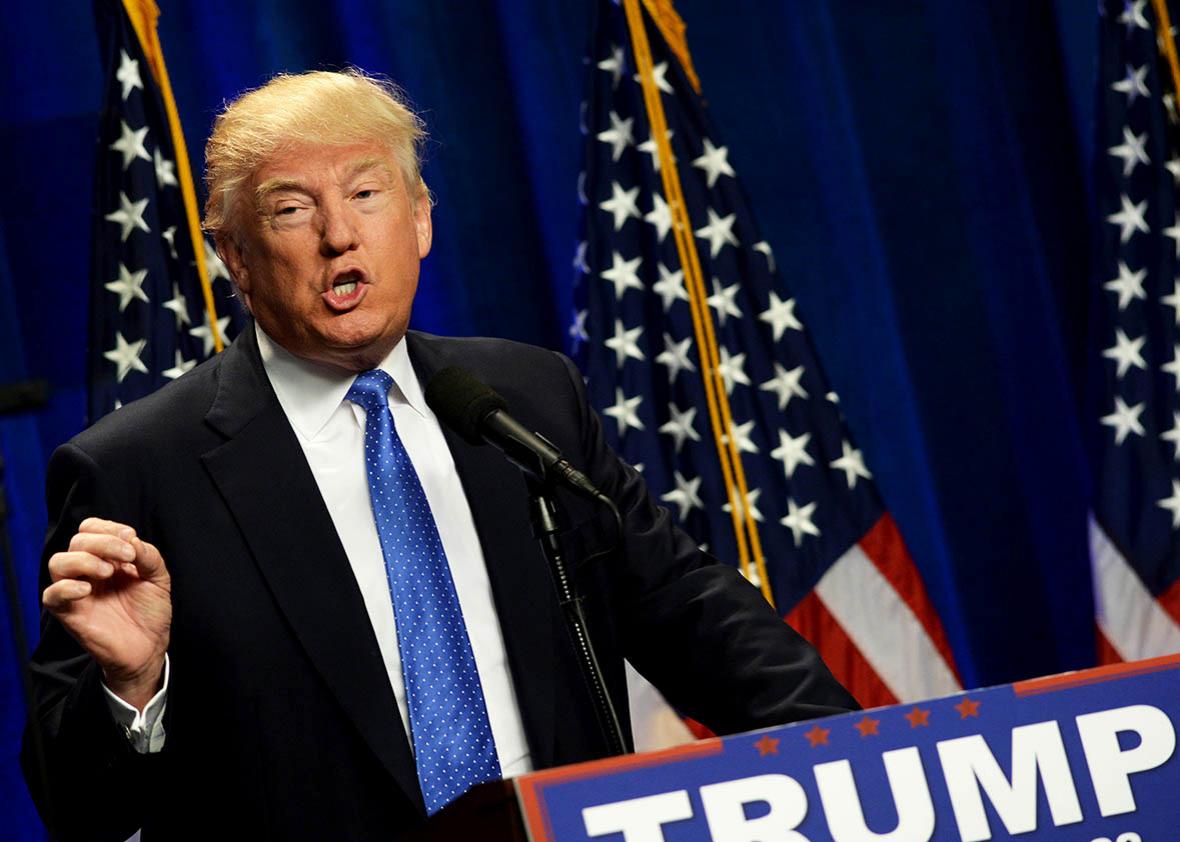On Monday, Donald Trump declared war on American Muslims. In a brief address at St. Anselm College in New Hampshire—laden with falsehoods—the real estate mogul, who now stands as the Republican Party’s nominee for president of the United States, issued a warning to the millions of Americans who claim Islam as their faith.
“They have to work with us,” said Trump of American Muslims. “They have to cooperate with law enforcement and turn in the people who they know are bad. They know it. And they have to do it, and they have to do it forthwith.” He kept on with this, asserting without evidence that Muslim Americans are intentionally hiding terrorists from law enforcement. “They have to work with us. They know what’s going on. They know that he was bad. They knew the people in San Bernardino were bad. But you know what? They didn’t turn them in. And you know what? We had death and destruction.”
For Trump, there is no distinction between ordinary Muslims and Islamist terrorists. All are potential threats who demand heightened scrutiny. “The bottom line is that the only reason the killer was in America in the first place was because we allowed his family to come here,” he said, emphasizing his view that Muslims are an inherent threat to U.S security, regardless of origin or citizenship, and misleading his audience about the flow and scope of Syrian refugees to the United States. (Trump says there is a “tremendous flow.” From October to May, just 2,805 were admitted into the country.)
Under his leadership, the federal government would keep Muslims from American borders, screening solely on the basis of religious belief. It would monitor mosques and any gathering of Muslim Americans as a matter of course. And it would punish Muslims who didn’t cooperate with his administration. “[W]hen people know what’s going on and they don’t tell us, and we have an attack, and people die, these people have to have consequences. Big consequences.”
We are so used to partisan combat and cacophony that it’s easy to treat this as just another speech from another nominee. Overheated, yes, but part of the same game. CNN’s Wolf Blitzer called it a “strong statement,” as if it were any other piece of political rhetoric. It wasn’t. With his call against Muslim Americans, Trump has given one of the most openly xenophobic speeches in modern American politics. And with his call to restrict, monitor, and harass American Muslims, he’s echoing the kind of rhetoric that leads inevitably to tragedy and atrocity.
It’s unclear what, if anything, Donald Trump believes about the world. But Monday’s speech leaves no doubt that his campaign is a bona fide threat to the Enlightenment values that sustain American democracy. To “make America great again,” Trump will jettison our hard-fought commitments to pluralism and religious tolerance in favor of a world governed by a kind of Blood and Soil nationalism, where even the sitting president is suspect on the basis of his heritage. The same Trump who accused Barack Obama of falsifying his birth certificate now says that the president “continues to prioritize our enemy over our allies, and for that matter, the American people.”
There’s every reason to think that this won’t move votes or support to Trump’s column. Since Monday, Trump has faced criticism on all sides, from the journalists who have little time for his untruths, to his rival—Hillary Clinton—who dedicated a speech to debunking Trump’s claims and attacking his politics of Muslim persecution, to Obama himself, who angrily denounced Trump’s rhetoric as a threat to American “pluralism” and an assist to ISIS and other groups who thrive on the notion that theirs is a war for Islamic civilization.
Still, with this election, we’ve entered truly dangerous territory. On the ballot for president of the United States is a man who would use the power of the office to hound an entire group of Americans, who would curtail press freedom and potentially go after his perceived enemies. And these aren’t larks or asides for the Republican nominee. They are the substance of his campaign.
All evidence says voters will reject that pitch. But until it actually happens, I can’t blame anyone for going through this election with both eyes vigilant and always open to the possibility that, come next year, we might have to live with a President Donald Trump.
